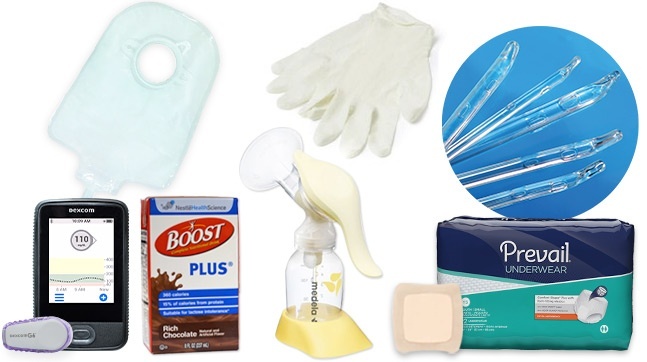Living Well After 50: Women in Charge
This post was reviewed by our Director of Clinical Excellence and Oversight.
Spend some time in the greeting card aisle or looking at ads for skin care products and you might start to think that all that’s in store for women over the age of 50 is weight gain, sagging skin, and thinning hair. Yikes! In fact, things have never been better for women of a certain age.
Spend some time in the greeting card aisle or looking at ads for skin care products and you might start to think that all that’s in store for women over the age of 50 is weight gain, sagging skin, and thinning hair. Yikes! In fact, things have never been better for women of a certain age.

Health Challenges Ahead?
There’s no question that advancing years can bring health challenges. According to the National Council on Aging, approximately 80% of older adults have at least one chronic condition, and more than 75% have two. But the good news is that there’s plenty you can do to prevent ill-health and continue to live the life you love for many years to come.
The key to living your best life after 50 does not actually lie in the face creams and tonics advertised on TV or touted by “lifestyle gurus.” Instead, healthy foods, plenty of movement, and getting the tests recommended by your healthcare professionals are the keys to keeping your strength and vitality.
No Time Like the Present
Is it safe to start exercising at age 60? Can I actually undo the damage caused by decades of poor eating habits? Yes, and yes! We’ve all read about people who lose 150 pounds or those who go from couch potato to marathon runner in a few months. But for most of us, staying healthy is less about big dramatic reversals, and more about new habits and incremental changes that we can stick with over time.

Food, Glorious Food.
Food is one of life’s pleasures and there’s no reason that should change once there’s an AARP card in your wallet. A healthy diet helps maintain weight and can actually prevent a variety of illnesses, including stroke and heart disease.
The experts advise us to eat like the Greeks! Following what’s known as a Mediterranean diet has been associated with reduced risk of cancer, heart disease, and cognitive decline. In general, say yes to fruits, vegetables, olive oil, legumes, fish, seafood, wine, and dark chocolate. Consume cream, butter, sweetened beverages, cakes, pastries, fries, chips, and lots of red meat and fatty cheeses in moderation.

Keep Moving.
Physical activity reduces the risk of heart disease, diabetes, and osteoporosis. It can also help women combat signs of menopause like hot flashes, joint pain, and sleep problems. The most effective program includes aerobic exercise (walking, jogging, dancing, swimming) to get your heart rate up. You also need strength training (planks, squats, weights) for strong bones and good posture. Plus stretching exercises to maintain flexibility and range of motion in your joints.
If going to the gym isn’t your thing, consider one of the many good fitness apps out there for folks over 50. Or find an exercise buddy to keep you honest. Be sure to ask your doctor before starting any exercise program.

Mind Your Habits.
If you’re a smoker, it’s (past) time to stop. Also, get plenty of sleep. And consider setting aside time each morning for quiet reflection, prayer, or meditation. Moderate your alcohol intake and ditch the salt shaker!
See Your Doc and Get those Tests
That annual checkup is just as important as ever, maybe more so. Although specific recommendations are tied to your health status and family history, the following are typical for women past their 50th candle.- Hepatitis C screening for those born between 1945 and 1965. Baby Boomers are at higher risk than other adults for hepatitis, which damages the liver but can be treated.
- Mammogram. Most women are advised to get their first (baseline) mammogram between 40 and 50, then every two years. Mammograms reduced the risk of advanced breast cancer by about 20% in women age 50-69.
- Bone density. Get tested by age 65, or earlier if you have a family history of fractures or osteoporosis. Cholesterol. Cholesterol is checked through a simple blood test. High levels of cholesterol increase your risk of heart disease.
- Blood pressure. Older adults with high blood pressure have a 40% chance of dying of cardiovascular disease. Get yours checked regularly.
- Blood sugar. Everyone over 45 should have their blood glucose tested to screen for diabetes. Pap smear and pelvic exam. Pap smears are recommended for women from 21 to 65 to detect cervical cancer.
- Colonoscopy. Your first colonoscopy should be by age 50, or earlier if you have a family history of colorectal cancer or have had ulcerative colitis or Crohn’s disease.
- Skin and mole check. Cases of skin cancer increase after the big five-o. Get an annual skin check from your healthcare provider, and use sunscreen daily. Other healthy lifestyle tips include regularly checking your vision, getting a shingles vaccine, an annual flu shot, and other immunizations. Pay attention to symptoms and listen to your body. The same goes for your emotional wellbeing—if you feel anxious, depressed, or frequently down in the dumps, reach out for help.
Here’s to an Older, Wiser, Healthier You
Thanks to conveniences such as easy and instantaneous access to information, home delivery of food, products, and medical supplies, and improvements in medical care, over 50 can be a great age to be. You may be showing a bit of gray these days, but with good health and good habits on your side, your best days are yet to come!Let HCD Be Your Medical Supply Partner
If you don’t know us, we’d like to introduce ourselves. We are Home Care Delivered, a leading medical supply company, with a 98.6% approval rating from our customers. We carry medical supplies for diabetes, incontinence, wound care, and ostomy and our knowledgeable customer care team excels at answering your questions about products and insurance coverage. Supplies can be shipped right to your door in 1-2 days, and we handle all the paperwork. Let us give you a call by entering your phone number on the bottom left of the screen. We are eager to help. Call us or enroll online today.

